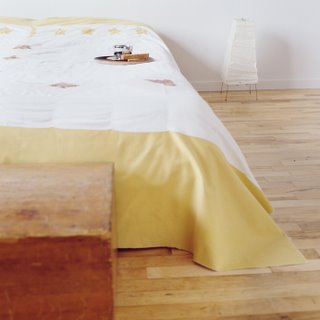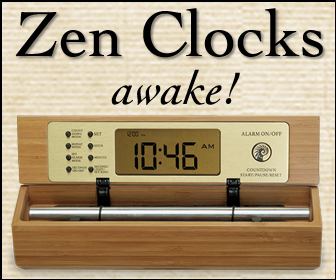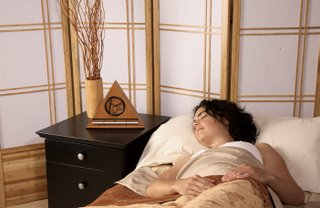
sleep for well-being
A good night’s rest can help you lose weight, beat depression, and ward off heart disease.
PEOPLE THINK sleep is a waste of time,” says James P. Krainson, M.D., director of the South Florida Sleep Diagnostic Center in Miami. “But they don’t realize that sleep will make them more productive.” It will also help you improve your memory, shed postpregnancy pounds, and stave off obesity, heart disease and diabetes. Dozens of studies support the notion that sleep is just as important for maintaining good health as diet and exercise. For example, a study published in the journal Sleep found a relationship between short sleep and increased diabetes risk. Other studies found a lack of sleep can exacerbate pain, cause mood disturbances, and even increase the risk of gum disease.
Your wake–up call
If results from a 2007 Sleep in America poll are anything to go by, too many women are risking their health from lack of sleep. Conducted by the National Sleep Foundation (NFS), last year’s poll revealed that 60 percent of American women get a good night’s sleep only a few nights per week or less. Apparently, when women are pressed for time–which, let’s face it, is every day—sleep is usually the first thing to go.
To help you get back in bed and waking up well rested we looked at two sleep ailments–and discovered some surprisingly effortless solutions.
THE PROBLEM: No time
Recent research at the University of Pennsylvania, published in 2007 in Sleep, says our work–driven culture keeps us from getting the rest we need. Among the findings: The more time we spend working and commuting, the less time we spend in bed. Even when we know that getting more sleep will make us feel better, it usually isn’t enough to keep us from burning the candle at both ends, says Michael Breus, Ph.D., sleep expert and author of Beauty Sleep: Look Younger, Lose Weight, and Feel Great Through Better Sleep (Plume, 2007). What’s required, Breus says, is a plan for making sleep a priority:
Set your clock for sleep
Set your Zen Alarm Clock with Chime to go off an hour before you want to go to sleep. The gentle Chime Alarm is your cue to start getting ready for bed.
Wind down for an hour Take 20 minutes to shut down the house for the night and prepare for the next morning. Spend the next 20 minutes doing your usual evening ablutions like washing your face, brushing your teeth, and changing into your pj’s. For the final 20 minutes, set your Meditation Timer with Chime for 20 minutes so that you can relax and meditate in bed. That’s it. No work, reading, e–mails, phone calls, paying bills, or getting into a discussion with your partner about your health, finances, or relationship during your power–down hour, says Breus. “Avoid any activity that gets your mind revved up before you go to bed,” he advises.

Create a Sleep Sanctuary
Create a sleep sanctuary
“I’ve gone into bedrooms of people who say they can’t sleep, and they’ve got a computer in there, a TV, a huge pile of laundry on the floor,” says Breus. The question then becomes, according to Breus, not “Why can’t I sleep?” but “How could I sleep under these circumstances?” To transform your bedroom, Breus recommends moving the computer and the TV out of the room and clearing out the clutter. “You want to create an area that’s flowing and positiv; he writes in his book Beauty Sleep.
THE PROBLEM: Insomnia
Insomnia—from the Latin word for “sleepless” –is the most common sleep disorder, characterized by difficulty falling asleep, waking up in the middle of the night and not being able to fall back asleep, or waking up too early in the morning. For a clinical diagnosis, the lack of sleep must impair your daytime functioning, says Gregg D. Jacobs, Ph.D., sleep specialist at UMass Memorial Medical Center and founder of cbtforinsomnia.com. “Almost half of all adults have insomnia once a week,” he adds. But only a fraction of sufferers seek treatment, in large part, Jacobs says, “because they’re afraid their doctor will prescribe sleeping pills, and there is a growing belief that pills are not a good choice.” Try these drug–free solutions instead:
Retrain your brain for sleep
Cognitive behavior therapy (CBT) is a common psychological technique used to help people change the way they think and act and thereby break certain self–destructive habits. In two major studies in the Journal of the American Medical Association and one study in the Archives of Internal Medicine, cognitive behavior therapy proved to be more effective than sleeping pills, says Jacobs. “And unlike pills, CBT has no side effects and works long term.”
The CBT insomnia treatment program that Jacobs developed and tested at Harvard Medical School and UMass Medical Center (now online at cbtforinsomnia.com) involves five sessions over five weeks. It teaches insomniacs many techniques—like waking up at the same time every morning, including weekends; and when sleep doesn’t come within 30 minutes, getting up and doing something quiet and relaxing–that help people reform their sleep habits.
RESOURCES Check with the National Association of Cognitive– Behavioral Therapists Organization, nacbt.org, to find a practitioner.
Try melatonin
The same hormone that your body produces to induce drowsiness, melatonin, can be purchased overthe– counter in a pill form. Unlike valerian, “melatonin usually has an immediate effect,” says Wong.
BUYING GUIDE Look for Puritan’s Pride melatonin at puritan.com. DOSAGE Take 0.3 mg per day about 30 minutes to an hour before bedtime. “The recommendation on product bottles, 1 to 3 mg, is higher than many practitioners believe it should be,” says Wong. “There’s concern that too large a dosage could cause the body to reduce its own production of melatonin.”

calming lavendar, aromatherapy for sleep
Sniff lavender before bed
When 31 “healthy sleepers” aged 18 to 30 years in a Wesleyan University peer–reviewed study (published in 2005 in the journal Chronobiology International) sniffed lavender essential oil over the course of one half hour before bed, it increased the amount of time they spent in the most productive stages of sleep, and they reported feeling more rested the next day.
BUYING GUIDE Try Aura Cacia lavender oil at health food stores or natural markets or at auracacia.com.
DIRECTIONS “Put a few drops of lavender oil in a warm bath about an hour before bed,” suggests Wong. “A warm bath raises body temperature. When it falls after you get out, that drop causes you to feel drowsy.”
Boulder, Colorado—an innovative company has taken one of life’s most unpleasant experiences (being startled awake by your alarm clock early Monday morning), and transformed it into something to actually look forward to. “The Zen Alarm Clock,” uses soothing acoustic chimes that awaken users gently and gradually, making waking up a real pleasure.

Gentle Chime Alarm Clock for a Progressive Awakening
Rather than an artificial recorded sound played through a speaker, the Zen Clock features an alloy chime bar similar to a wind chime. When the clock’s alarm is triggered, its chime produces a long-resonating, beautiful acoustic tone reminiscent of a temple gong. Then, as the ring tone gradually fades away, the clock remains silent until it automatically strikes again three minutes later. The frequency of the chime strikes gradually increase over ten-minutes, eventually striking every five seconds, so they are guaranteed to wake up even the heaviest sleeper. This gentle, ten-minute “progressive awakening” leaves users feeling less groggy, and even helps with dream recall.
adapted from Natural Health Magazine

Wake up to the Zen Alarm Clock with Soothing Chime for a Progressive Awakening
Now & Zen’s Natural Chime Alarm Clock Shop
1638 Pearl Street
Boulder, CO 80302
(800) 779-6383
Posted in sleep, Sleep Habits, Well-being